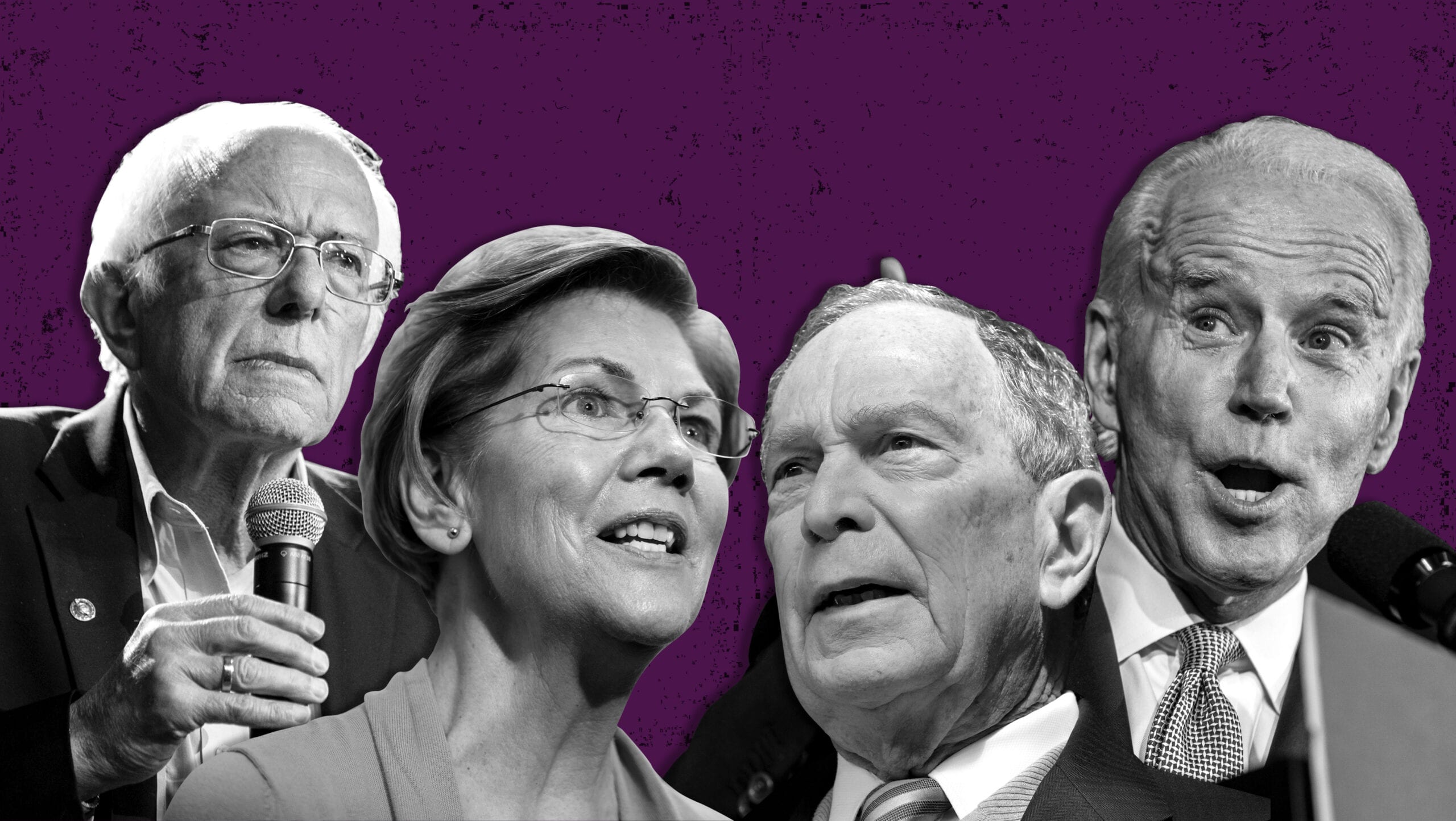Brace yourself: We’re now exactly eight months away from the 2020 U.S. presidential election, and one month into the Democratic Party’s race for a new leader and opponent to President Donald Trump. And what a wild ride it’s been so far. Since the first Democratic caucus in Iowa, we’ve seen a billionaire candidate dump hundreds of millions of dollars into ad campaigns, the first openly gay millennial candidate rise and fall and the ascent of—yes, seriously—a socialist frontrunner.
Tonight, the remaining Democrats will duke it out as 14 states—home to 1,344 of 1,991 delegates needed to win the first ballot—host their primaries and vote for their pick to become the Democratic presidential nominee.
Ahead of Super Tuesday results, here’s where the four candidates stand on LGBTQ issues.
Bernie Sanders: The Frontrunner

Credit: EPA/ETIENNE LAURENT
Bernie Sanders is currently the Democratic candidate to beat, having amassed the support of 58 delegates from the past month’s primaries and caucuses in Iowa, New Hampshire, Nevada and South Carolina. As the race’s frontrunner, Sanders has also earned the support of LGBTQ voters: According to a January Morning Consult poll, the Vermont senator is the first-choice candidate for 34 percent of Democratic primary voters who identify as LGBTQ.
On queer and trans issues, Sanders lays out a 12-point plan in his platform. At the top of the list is healthcare—the bread and butter of his platform—calling for all LGBTQ folks to have access to comprehensive healthcare without discrimination from medical providers. Sanders also promises that, as president, he would pass the Equality Act (which would protect LGBTQ people from discrimination on the basis of sexual orientation and gender identity), end the Trump administration’s ban against trans folks serving in the military and create federal recognition of non-binary identities (including a third gender designation on government-issued documents).
Joe Biden: The Former VP

Credit: EPA/Jim Lo Scalzo
A former vice-president and U.S. senator, Joe Biden has a long—and not-so-flattering—track record on LGBTQ issues. At a forum on the topic in September, Biden was grilled on his past voting record, which included supporting the “Don’t ask, don’t tell” military policy that prohibited openly gay Americans from serving, as well as the Defense of Marriage Act. (In response, Biden told the audience that he supported gay marriage in 2012, before President Barack Obama did.)
In his presidential platform, Biden has taken a decidedly more progressive tone. His more comprehensive plan on LGBTQ issues has yet to be released but, like Sanders, Biden says he will pass the Equality Act and end the military ban for trans folks if elected president. He also outlined his support of LGBTQ students, referring back to his support of the “It Gets Better” and “As You Are” campaigns. If elected, Biden claims that on his first day in office he will ensure access to sports, bathrooms and locker rooms for students based on their gender identity and not their sex, and “investigate violations of transgender kids’ civil rights.”
Mike Bloomberg: The Billionaire

Credit: AP Photo/Michael Wyke
Known best for his time as New York City’s mayor and, yes, all of those TV ads, Mike Bloomberg threw his hat in the race in November, making Super Tuesday his first eligible shot at earning delegate support.
But support from LGBTQ communities will be much harder to earn. Last month, a video from 2019 surfaced showing Bloomberg referring to trans folks as “he, she or it” and “some guy in a dress.” In 2016, he had made a similar remark about “a man in a dress.” The Bloomberg team’s response? A video featuring gay fashion designer Isaac Mizrahi calling the former mayor “sensitive” on queer and trans issues.
Policy-wise, Bloomberg has a six-point platform on LGBTQ issues. He promises to “fight” for the passage of the Equality Act—a stark difference in the decided language of Biden and Sanders, who state its passage as fact. Bloomberg also promises expanded Medicare-like public healthcare, the launch of a national “Respect for All” anti-bullying campaign and a very Trump-esque vow to end HIV/AIDS by 2030.
Elizabeth Warren: The Persistent Candidate

Credit: AP Photo/Matt Rourke
Yes, Massachusetts Senator Elizabeth Warren is still in this race, despite a small showing of support in the first four Democratic caucuses and primaries and a chance that she may not win a single Super Tuesday contest. That news may come to the delight of queer and trans Americans, many of whom she won over at September’s LGBTQ issues forum for her quick comeback on gay marriage that later went viral online. She’s been hailed by trans Americans as a strong ally. And we need not forget her cast of queer celebrity supporters—from Roxane Gay to Jonathan van Ness and even Melissa Etheridge.
Even though she lags behind Sanders and Biden in delegate count, Warren boasts the most comprehensive of plans on LGBTQ issues among Democratic contenders, padded not just with promises but with stats on the everyday realities of queer and trans Americans. But her plan is not dissimilar from her opponents, with a promise, like Bloomberg, to fight for the passage of the Equality Act, prevent discrimination on the basis of religious freedom, end conversion therapy on a national scale and improve the climate of the education system for LGBTQ youth.


 Why you can trust Xtra
Why you can trust Xtra


